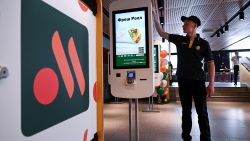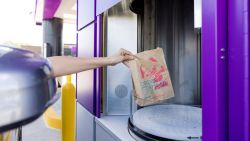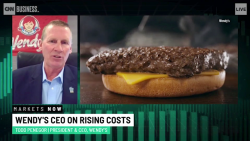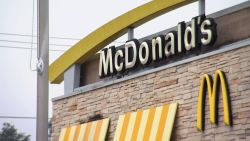Shares in Anheuser-Busch InBev’s Asia business popped on theirmarket debutin Hong Kong on Monday.
Budweiser APAC stock closed 4.4% higher at 28.2 Hong Kong dollars ($3.6) on its first day of trading in what was the second biggest public offering this year after Uber’s $8.1 billion IPO in May.
The brewer of Budweiser, Beck’s and Stella Artois opened at 27.4 Hong Kong dollars ($3.50) a share, about 1.5%aboveits IPO price of27 Hong Kong dollars ($3.44) a share, before rising further through the day.
The IPO raised about $5 billion, which AB InBev (BUD) will use entirely to pay down debt.
The beer maker’s public debut comes at a time when other highly anticipated IPOs have flopped. Shares in lossmaking companies like Uber (UBER), Peloton and SmileDirectClub (SDC) all plunged on their first day of trading. Uber (UBER) fell 7%, Peloton shed 11% and SmileDirectClub (SDC), a direct seller of transparent braces, ended its first day on Wall Street down 27.5% from its IPO price.
Budweiser APAC fared better, tapping into investor appetite for established companies that make money. The brewer booked $959 million in net profit in Asia last year.
Budweiser APAC’s IPO is a big win for the Hong Kong Stock Exchange (HKXCY). The bourse has been battered by months of political crisis in the city, the ongoing US-China trade war and slowing consumption in China. Its operator also had an unsolicited bid for the London Stock Exchang (LDNXF)e firmly rejected. The Hang Seng Index has fallen nearly 9% over the last three months.
The listing excludes Budweiser APAC’s Australia operations, which the group is selling to Japanese rival Asahi for $11.3 billion.
Offloading the Australian business,which was mature and seeing slower growth, meant the company was able to sell investors on faster growing markets in the Asia Pacific region, such as China. AB InBev’s sales in the country grew 8.3% last year, with brands like Budweiser and Corona performing especially well.
AB InBev became the world’s largest brewer by borrowing money to fund a series of acquisitions. Its most recent mega purchase, of SABMiller, increased the company’s debt to $102.5 billion in 2018. It has already made some moves to steady its balance sheet, including cutting its dividend in half last year.
AB InBev had originally planned to raise $9.8 billion from the Hong Kong listing, which would have made it the biggest IPO so far this year. But it scrapped that plan in July, citing market conditions, before resurrecting the deal earlier this month.


























